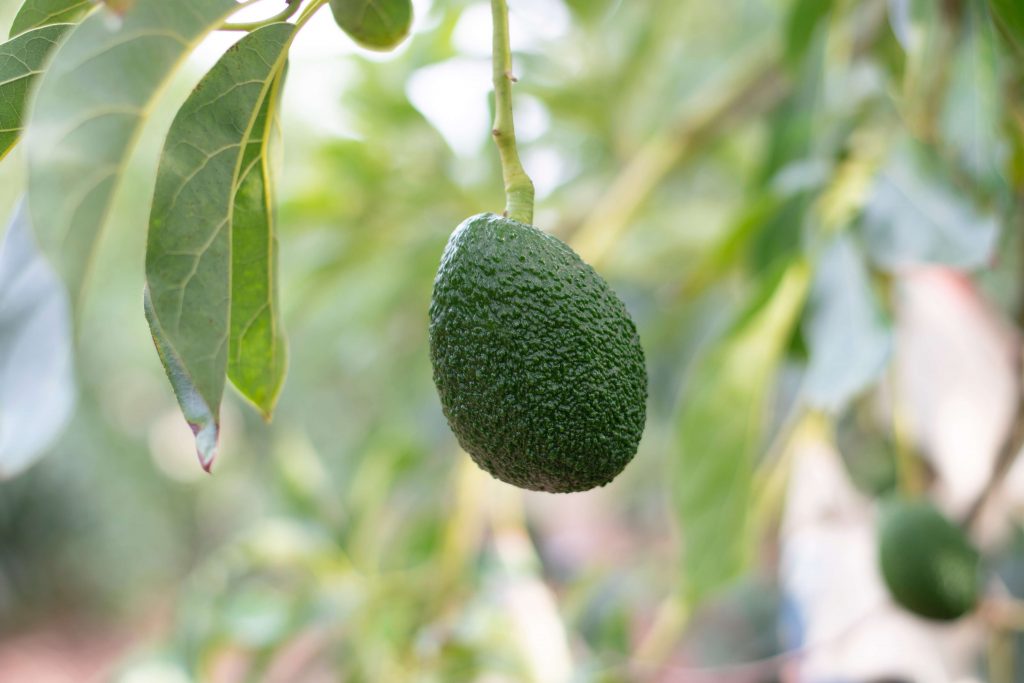Avocado oil is a popular cooking ingredient used in many cuisines across the world. It has a rich, buttery flavor and a high smoke point, making it a great option for high-heat cooking methods. Can I use Avocado oil instead of Canola oil? However, when considering substituting canola oil with avocado oil, there are a few factors to consider…
- The Nutritional Content of Avocado Oil vs Canola Oil
- Smoke Points and Cooking Oils
- Smoke Points of Avocado Oil and Canola Oil
- Considerations for Substituting Avocado Oil for Canola Oil
- Benefits of Using Avocado Oil Instead of Canola Oil
- Flavor Differences: Cooking with Avocado Oil vs Canola Oil
- Resolving Texture and Consistency Differences with Avocado Oil
- Cost Considerations
- Recipes That Pair Well with Avocado Oil
- Is Avocado Oil Always a Suitable Substitute for Canola Oil?
- Other Common Substitutes for Canola Oil
- Final Thoughts on Substituting Avocado Oil for Canola Oil
Firstly, it is important to note that avocado oil has a stronger flavor than canola oil, which may impact the taste of the final dish.
While it may work well in certain recipes such as dressings, sauces, or marinades, it may not be the best option for more delicate flavors or baked goods. It’s always worth keeping in mind the flavor profile of the chosen oil while selecting which one to use.
In addition, it is important to ensure that the substitution will not significantly affect the texture or consistency of the dish. Canola oil and avocado oil have different properties, and the latter may not have the same emulsifying properties that make it an ideal ingredient for baking recipes.
It’s best to consider the recipe requirements and determine if avocado oil is the best substitute for canola oil in terms of taste and texture.
The Nutritional Content of Avocado Oil vs Canola Oil
When considering the nutritional value of oils, it’s important to take a look at their fat content, vitamins, and antioxidants. In this part, we will compare the nutritional content of avocado oil and canola oil to help you make an informed decision about which one to use in your cooking.
Fat Content
Both avocado oil and canola oil are considered healthy fats, but there are some differences in their fat content. Avocado oil is higher in monounsaturated fatty acids (MUFAs), which are known to help lower cholesterol levels.
Read also: Does Lettuce Need To Be Refrigerated?
Canola oil, on the other hand, is higher in polyunsaturated fatty acids (PUFAs), which are essential for brain function and other important bodily processes.
| Nutrient | Avocado Oil (per 100g) | Canola Oil (per 100g) |
|---|---|---|
| Total Fat | 100g | 100g |
| Saturated Fat | 12g | 7g |
| Monounsaturated Fat | 69g | 63g |
| Polyunsaturated Fat | 14g | 28g |
Vitamins
Avocado oil is a good source of Vitamin E, which is an antioxidant that helps protect your cells from damage. Canola oil also contains Vitamin E, but in smaller amounts.
Antioxidants
Both avocado oil and canola oil contain antioxidants that can help to prevent damage to your cells. Avocado oil contains lutein, a carotenoid that is good for eye health, while canola oil contains vitamin K, which is important for blood clotting and bone health.
Both avocado oil and canola oil have their own unique nutritional benefits. Avocado oil is higher in monounsaturated fats and vitamin E, while canola oil is higher in polyunsaturated fats and vitamin K. It’s important to consider your own dietary needs when choosing the right oil for your cooking.
Smoke Points and Cooking Oils
When considering substituting one oil for another, smoke points are an important factor to keep in mind. A smoke point is the temperature at which an oil begins to smoke and starts to break down, producing harmful free radicals and a bitter taste in food.
Cooking oils with high smoke points are ideal for high-heat cooking methods like frying, sautéing, and baking, while oils with low smoke points are better suited to gentle cooking techniques like simmering and salad dressings.
Smoke Points of Avocado Oil and Canola Oil
Avocado oil has a high smoke point of around 520 degrees Fahrenheit, making it an excellent choice for high-heat cooking methods. This oil has a neutral taste and a high monounsaturated fat content, making it a healthier option than some other oils that are high in saturated fats.
On the other hand, canola oil has a smoke point of around 400 degrees Fahrenheit, making it less suitable for high-heat cooking methods. Canola oil has a mild, neutral taste and is low in saturated fats, which makes it a popular choice for many recipes.
Considerations for Substituting Avocado Oil for Canola Oil
When substituting avocado oil for canola oil, keep in mind that avocado oil has a higher smoke point. This means that it can be used in high-heat cooking methods and provides a neutral taste that won’t overpower other flavors in your dish. However, as avocado oil has a thicker consistency than canola oil, it may affect the texture of some recipes.
It’s also important to note that avocado oil is generally more expensive than canola oil, so consider this when deciding whether to substitute avocado oil for canola oil in a recipe.
When substituting cooking oils, smoke points are an important factor to consider. Avocado oil has a high smoke point and neutral taste, making it a good substitute for canola oil in high-heat cooking methods. However, its thicker consistency and higher price point may impact some recipes. Ultimately, the choice between avocado oil and canola oil as a substitute will depend on the specific recipe and the desired outcome.
Benefits of Using Avocado Oil Instead of Canola Oil
Avocado oil has a higher smoke point than canola oil, making it a healthier option for high-heat cooking methods like frying and roasting. The smoke point of avocado oil is around 520°F while the smoke point of canola oil is around 400°F. This means that avocado oil is less likely to break down and release harmful compounds when subjected to high temperatures, making it a better choice for cooking at higher temperatures.
One of the biggest health benefits of avocado oil is its higher concentration of monounsaturated fatty acids (MUFA) compared to canola oil. MUFA is a type of healthy fat that has been linked to reduced inflammation, lower cholesterol levels, and improved heart health.
Avocado oil contains up to 70% MUFA, while canola oil has only about 62% MUFA. This makes avocado oil a healthier choice for those looking to improve their heart health and overall wellbeing.

Another benefit of avocado oil over canola oil is its higher content of vitamin E. Vitamin E is a powerful antioxidant that helps protect the body from oxidative stress and supports a healthy immune system. Avocado oil contains roughly 20mg of vitamin E per 100g, while canola oil contains only around 2-3mg of vitamin E per 100g.
Finally, avocado oil also contains higher levels of other important nutrients like potassium, fiber, and antioxidants. These nutrients help support healthy digestion, reduce inflammation, and protect the body from free radical damage.
While canola oil is a popular and widely-used cooking oil, switching to avocado oil can offer several health benefits. With its higher smoke point, higher concentrations of healthy fats and antioxidants, and higher levels of key nutrients, avocado oil is a more wholesome and nutritious choice for your cooking needs.
Flavor Differences: Cooking with Avocado Oil vs Canola Oil
With choosing between avocado oil and canola oil, one of the biggest factors that differentiate the two is their flavor. While canola oil is a neutral-flavored oil, avocado oil has a distinctive, rich, and buttery flavor profile.
Avocado oil is made from pressing the flesh of the avocado fruit, resulting in an unrefined oil that has a green hue and earthy aroma. It has a high smoke point of around 520°F (271°C), making it great for high-heat cooking methods such as grilling, sautéing, and roasting. Its rich buttery flavor adds depth and complexity to dishes, making it a popular choice for marinades, dressings, and dips.
On the other hand, canola oil is made from the seeds of the canola plant, resulting in a refined oil that has a mild and neutral taste. It has a smoke point of around 400°F (204°C), making it ideal for baking, frying, and other medium-heat cooking methods. Its neutral flavor won’t overpower the other ingredients in a dish, making it a versatile oil for everyday cooking.
By choosing between avocado oil and canola oil for cooking, it ultimately comes down to personal preference and the recipe at hand. If you’re looking to add a rich and buttery flavor to your dish, then avocado oil is a great choice, while canola oil might be a better option if you want a neutral-tasting oil that won’t interfere with the flavors of the other ingredients in your recipe.
Here is a table comparing the smoke points and nutritional profile of avocado oil and canola oil:
| Oil | Smoke Point °F (°C) | Calories per Tbsp | Fat per Tbsp (g) |
|---|---|---|---|
| Avocado Oil | 520°F (271°C) | 124 | 14g |
| Canola Oil | 400°F (204°C) | 124 | 14g |
As you can see, both oils have the same amount of calories and fat per tablespoon. However, avocado oil has a higher smoke point, making it more suitable for high-heat cooking methods.
Resolving Texture and Consistency Differences with Avocado Oil
Substituting avocado oil for canola oil in a recipe, any differences in texture or consistency can be easily resolved by making a few simple adjustments. Here are some tips to help you achieve the desired texture and consistency in your dishes when using avocado oil:
- Use less avocado oil: Avocado oil has a higher fat content than canola oil, which can lead to a greasier texture. To combat this, use slightly less avocado oil than you would canola oil in a recipe.
- Increase the baking time: When cooking with avocado oil, baked goods may take longer to cook than they would with canola oil. This is because avocado oil doesn’t produce steam during baking like canola oil does. To ensure your baked goods are fully cooked, increase the baking time by a few minutes.
- Add a binding agent: Avocado oil doesn’t have the same binding properties as canola oil, which can result in a crumbly texture. Adding a binding agent such as egg, milk, or yogurt can help improve the texture and hold the ingredients together.
- Blend with another oil: To balance the flavor and texture, you can blend avocado oil with an oil that has a more neutral flavor, such as canola oil or vegetable oil.
Overall, substituting avocado oil for canola oil can enhance the flavors and nutritional value of your meals. By making these simple adjustments, you can achieve the desired texture and consistency in your dishes while enjoying the numerous health benefits of avocado oil.
Cost Considerations
Cost is always a factor to consider. The good news is that both avocado oil and canola oil are competitively priced and often similar in cost. However, it’s important to shop around and compare prices based on the size and brand of the product.
Although avocado oil may be slightly more expensive than canola oil, keep in mind that it has a high smoke point and longer shelf life, meaning you may end up using less oil overall and saving money in the long run. Plus, if you’re interested in the potential health benefits of avocado oil, the added cost may be worth it.
It’s also important to consider the specific recipe when deciding whether to substitute avocado oil for canola oil. Some recipes may require the neutral taste of canola oil and substituting with avocado oil may alter the flavor. This could be particularly problematic for baked goods, where small changes in ingredient ratios can make a big difference in the final product.
Whether you can afford to substitute avocado oil for canola oil comes down to your individual budget and recipe needs. If cost is a concern, look for sales and compare prices between different brands and sizes of the oils. And if you’re not sure how the substitution will affect your recipe, consider doing a small test batch first.
Recipes That Pair Well with Avocado Oil
As someone who loves cooking, I always look for ways to incorporate healthy ingredients into my recipes. Avocado oil is one ingredient I have been using for many years now, and it has completely replaced canola oil in my kitchen. Here are some of my favorite recipes that pair well with avocado oil:
Roasted Vegetables
Roasting vegetables is always a hit in my family. It is a healthy and delicious way to prepare vegetables, and the addition of avocado oil makes them even more flavorful. Simply toss your favorite vegetables in avocado oil, add some salt, pepper, and herbs, and roast in the oven until golden and crispy.
Grilled Chicken
I love using avocado oil to marinate chicken for grilling. It adds a unique flavor to the chicken, and the oil helps to keep the chicken moist and juicy. You can combine avocado oil with garlic, lemon juice, salt, pepper, and herbs before marinating your chicken. It’s simple but incredibly tasty!
Homemade Salad Dressing
Making your own salad dressing is a great way to ensure that you’re using healthy ingredients. Avocado oil makes an excellent base for salad dressings because it has a mild flavor that doesn’t overpower the other ingredients. You can combine avocado oil with balsamic vinegar, honey, mustard, and herbs for a delicious and healthy dressing.
Avocado Oil Mayo
If you’re a fan of mayonnaise, you will love the taste of homemade avocado oil mayo. It’s easy to make and much healthier than store-bought mayo that is often packed with preservatives and unhealthy oils. You can make it using avocado oil, egg yolks, lemon juice, mustard, and salt.
Baked Sweet Potato Fries
Baked sweet potato fries are one of my favorite side dishes. They’re crispy, sweet and savory all at the same time. Tossing the sweet potato fries in avocado oil before baking them makes them even more delicious.
Overall, these recipes are simple and easy to make, and they each have a unique taste that makes them stand out. Incorporating avocado oil into your cooking can be a great way to promote good health without sacrificing flavor.
Is Avocado Oil Always a Suitable Substitute for Canola Oil?
Avocado oil is often touted as a healthier alternative to canola oil, but is it always a suitable substitute? The answer is not a straightforward yes or no. While avocado oil has some similarities to canola oil, such as having a high smoke point, there are some notable differences to consider.
Here are some factors to consider when deciding whether to use avocado oil as a substitute for canola oil:
- Flavor: Avocado oil has a distinct nutty and buttery flavor that can alter the taste of the dish. Canola oil is virtually tasteless, making it a good choice when you don’t want the oil to affect the flavor of your recipe.
- Cost: Avocado oil tends to be pricier than canola oil, so if you’re on a tight budget, using avocado oil as a substitute may not be the most cost-effective option.
- Nutrition: Avocado oil is higher in heart-healthy monounsaturated fats and antioxidants than canola oil. Additionally, avocado oil is a good source of Vitamin E, which can have a positive impact on skin and immunity. However, canola oil is still a healthy choice, as it is low in saturated fat and high in Omega-3 fatty acids.
- Cooking method: If you’re using high heat for cooking, both avocado and canola oils are good choices due to their high smoke points. However, avocado oil is more heat-resistant and can be a better option than canola oil for frying or roasting at higher temperatures.
In summary, avocado oil can be a suitable substitute for canola oil in some instances, but it may not be the best choice for every recipe. Consider factors such as taste, cost, nutrition, and cooking method when deciding which oil to use.
Other Common Substitutes for Canola Oil
While avocado oil is a great alternative to canola oil due to its neutral taste and high smoke point, there are several other substitutes that you can use in case you don’t have avocado oil on hand.
Here are a few common ones:
- Olive Oil: Being one of the most nutritious oils on the market, olive oil is a great candidate to replace canola oil. It has a high smoke point and a fruity taste that pairs well with many foods. However, olive oil might not be the best option for baking as it has a strong flavor that can overpower the other ingredients.
- Coconut Oil: If you’re looking for a healthier oil, coconut oil is a great choice. It’s a good source of healthy fats and has a similar consistency to canola oil when melted. However, coconut oil has a distinct flavor that might not work well with certain dishes.
- Sunflower Oil: This oil has a mild taste and a high smoke point, which makes it a great alternative to canola oil. Sunflower oil is also a good source of vitamin E, an important antioxidant that protects the body against free radicals.
- Soybean Oil: Soybean oil is another common oil that can be used in place of canola oil. It has a neutral flavor and a high smoke point, which makes it ideal for frying and other high-heat cooking methods. However, soybean oil contains high amounts of omega-6 fatty acids, which can be pro-inflammatory when consumed in excess.
- Grapeseed Oil: Grapeseed oil is a healthy oil that’s rich in vitamin E and polyunsaturated fats. It has a high smoke point and a neutral taste, making it a popular alternative to canola oil. Grapeseed oil is also a good source of omega-3 fatty acids, which have anti-inflammatory properties.
There are several oils that you can use as a substitute for canola oil depending on your taste preferences, cooking method, and health goals. It’s always a good idea to choose oils that are high in healthy fats and have a high smoke point to avoid the harmful effects of oxidized oils.
Final Thoughts on Substituting Avocado Oil for Canola Oil
After conducting thorough research and analyzing the differences between avocado oil and canola oil, it can be concluded that avocado oil can be a great substitute for canola oil in many recipes.
Avocado oil contains high levels of monounsaturated fatty acids and antioxidants, making it a healthier option compared to canola oil. Additionally, it has a higher smoke point, making it ideal for higher temperature cooking methods such as frying.
However, there are certain recipes where canola oil is the preferred choice due to its neutral taste and lower cost. It is important to keep in mind that substituting avocado oil for canola oil may alter the taste of the final product, so it is recommended to conduct a small test before using a large amount of avocado oil.
Substituting avocado oil for canola oil is a viable option for those looking for a healthier alternative in their cooking. As with any ingredient substitution, it is important to understand the differences and impact on the final product to ensure the best results.





